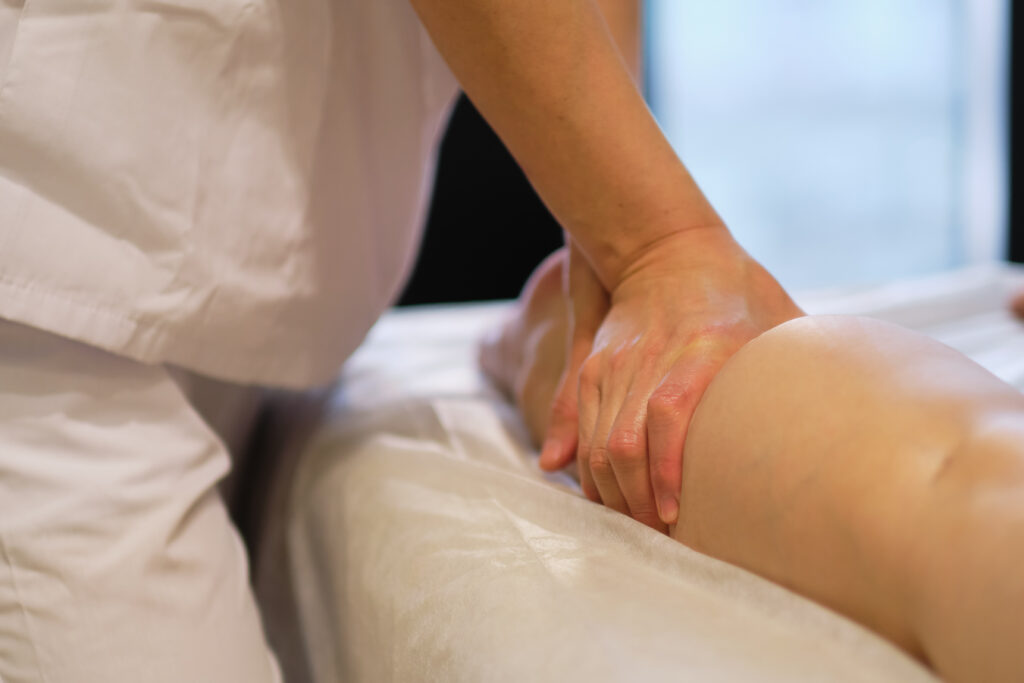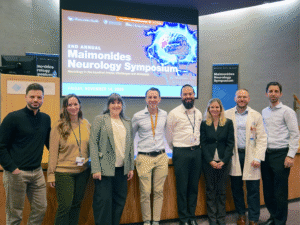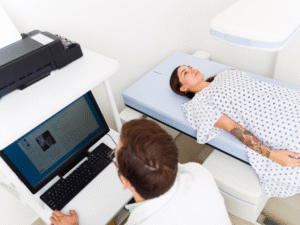Lymphedema is estimated to affect at least 3 million people in the United States. Most often, it occurs in the extremities, but can also occur in the face, the trunk, the abdomen, or the genital area. Medical providers should be able to identify signs, symptoms, and when patients are at the greatest risk for lymphedema in order to manage and reduce swelling. Early diagnosis and treatment can greatly improve quality of life for patients living with this condition.
At Maimonides Rehabilitation Centers, licensed physical and occupational therapists provide effective lymphedema treatment options for patients of every age group. They have extensive experience treating both primary lymphedema and secondary lymphedema, resulting from trauma, cancer, immobility, and other conditions.
Because many cases of this condition are related to other medical needs, treating lymphedema requires collaborative care spanning several different departments and specialties to ensure a comprehensive and effective medical experience for all patients.
“Maimonides Rehabilitation Centers collaborate closely with the Cancer Center, Department of Vascular Surgery, Department of Neurology, and trauma and wound care specialists at Maimonides, as well as healthcare providers from other hospitals,” said Irina Karavanchenco, Senior Physical Therapist and Lymphedema Specialist at Maimonides.
Early Diagnosis and Treatment Are Critical
Patients of all ages and from all walks of life can develop lymphedema. Most patients who experience swelling from lymphedema have it in their extremities, but it can affect any part of the body. It can cause a great deal of discomfort no matter where patients have lymphedema, but Maimonides’ therapists have extensive experience controlling and reducing the swelling to reduce symptoms.
“We provide one-on-one, personalized services – there is no ‘one-size-fits-all’ approach to the work we do,” said Xiao Jun Zhan, Physical Therapist Assistant and Lymphedema Specialist. “Gold-standard treatment for lymphedema is complete decongestive therapy (CDT), which consists of manual lymphatic therapy (MLD), compression therapy (compression bandages, or garments), skin care, education, and exercises — all of which are tailored to each individual patient.”
Specialized Practice Underpinned by Compassion and Understanding
Patients who have lymphedema face mobility issues, pain, and other challenges on a daily basis. And since there’s no cure for lymphedema, it’s especially important for patients to know that every time they get care at Maimonides, compassionate care and improving quality of life as much as possible are always each provider’s priorities.
“Lymphedema is not curable and can be emotionally difficult for patients to accept,” said Lan Chen, Occupational Therapist and Lymphedema Specialist. “This is often the case with breast cancer patients who undergo surgery, radiation, or chemotherapy. Even though it’s not curable, it’s manageable, especially if diagnosed and treated early.”
To schedule an appointment or to refer patients to Maimonides Rehabilitation Services, visit https://maimo.org/treatments-care/rehabilitation/ or call (718) 283-8961.




